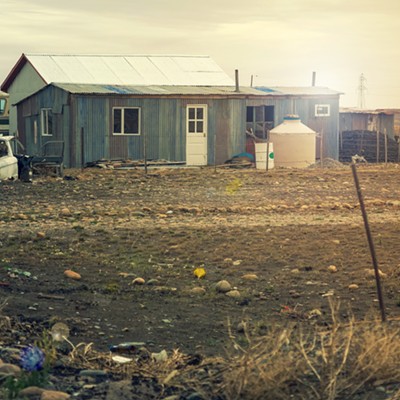One of my favorite books from the past couple of years is Playing the Enemy by John Carlin. It's a straightforward and stirring account of how a fledgling national leader skillfully used sports to help heal a country and quite possibly prevent a bloodbath that could have turned into genocide.
During his nearly three decades in captivity in apartheid South Africa, Nelson Mandela spent his time wisely. He taught himself to speak Afrikaans, the Dutch-like language used by the ruling white class. And he studied the game of rugby, which, to white South Africans, was the American equivalent of football, basketball and baseball put together. (Blacks in South Africa, along with some of the poorer whites, played and followed soccer.)
When the white government finally called on Mandela for help out of the impending doom, he made them feel at ease by speaking their language, and he charmed and amazed them with his knowledge of rugby.
The casual American sports fan will remember that South Africa was banned from the Olympics, but that was small potatoes in comparison to their having been banned from international rugby competition. It started when the South African national team, the Springboks, toured New Zealand and played a series of matches against the legendary New Zealand All Blacks. Civil unrest reached a boiling point in New Zealand and then exploded over when plans were announced for the All Blacks to play in South Africa. Anti-apartheid sentiment was so high in New Zealand (and among many of the All Blacks players) that the tour was canceled, and a de facto international rugby boycott of South Africa went into effect.
The rugby boycott, along with the Olympic ban and an ever-increasing tide of countries, universities and corporate entities refusing to do business with South African companies, helped nudge South Africa toward the 20th century, albeit in the last decade of the century.
When Mandela finally was released from prison and became the country's leader, he used his international reputation and negotiating skills to give white South Africans something they probably never thought possible and certainly didn't deserve—re-admittance to the international rugby community and, incredibly, the chance to host the 1995 World Cup of rugby.
Against all odds, the South African team reached the final game of that World Cup (against the heavily favored All Blacks), and when Nelson Mandela walked onto the field wearing a Springbok jersey and shook the hand of François Pienaar, the captain of the South African national team, the stadium erupted into a roar that echoes even today.
"I remember that moment like it was yesterday," says Dave Sitton, best-known in these parts as the TV voice of UA basketball and football. What he's less-well-known for (although it's infinitely more impressive) is that he has been the coach of the University of Arizona club rugby team for 32 years. Sitton's current team is ranked ninth in the country. He is also the TV announcer for USA Rugby, which has recently signed a long-term deal with ESPN in advance of the sport joining the Olympic Games in 2016.
"About 100 of us gathered outside Bob Dobbs at 5:45 in the morning to watch that game. (Rugby enthusiast and Bob Dobbs manager) Mike Beth arranged for it to be shown at Bob Dobbs, but they couldn't open up until 6 a.m. due to liquor laws."
Rugby fans drinking?! Probably only in America.
"When Mandela walked out onto that field in the Springbok jersey, it was electric. I'm sure millions of people all over the world felt exactly the same way.
"You have to remember that to South African blacks, the Springbok had been the equivalent of a swastika. Furthermore, a lot of people think that Mandela's becoming president of South Africa laid all the problems to rest among the black majority. But there were warring tribal factions and all kinds of political groups, not to mention a large number of blacks who simply wanted revenge against the whites," Sitton explains.
"What Mandela did was courageous and inspiring—it was one of the great moments in modern history. I have no doubt that it saved countless thousands of lives."
Carlin's book has now been turned into the movie Invictus, which opens tomorrow (Dec. 11). It's directed by Clint Eastwood, and the buzz is that it immediately jumps to the head of the Best Picture Oscar line. The part of Nelson Mandela is being played by Morgan Freeman, who reportedly was the first and only choice of Mandela himself. Matt Damon, who has obviously hit the weight room, plays the part of François Pienaar.
I thought so much of the book that I gave copies of it to friends. Amphi High football coach Vern Friedli, a voracious reader, loved it and passed it on to his son. Guy van Zijll, a rugby enthusiast who, by odd coincidence, is conversant in Afrikaans, found it quite moving. I'm taking my basketball team to see the movie this weekend.
I realize that there are those who see sports as this giant waste of time, money, effort and passion. To those people, we can say that there was at least one time that sports—with one game, two men and one handshake—worked a miracle.







